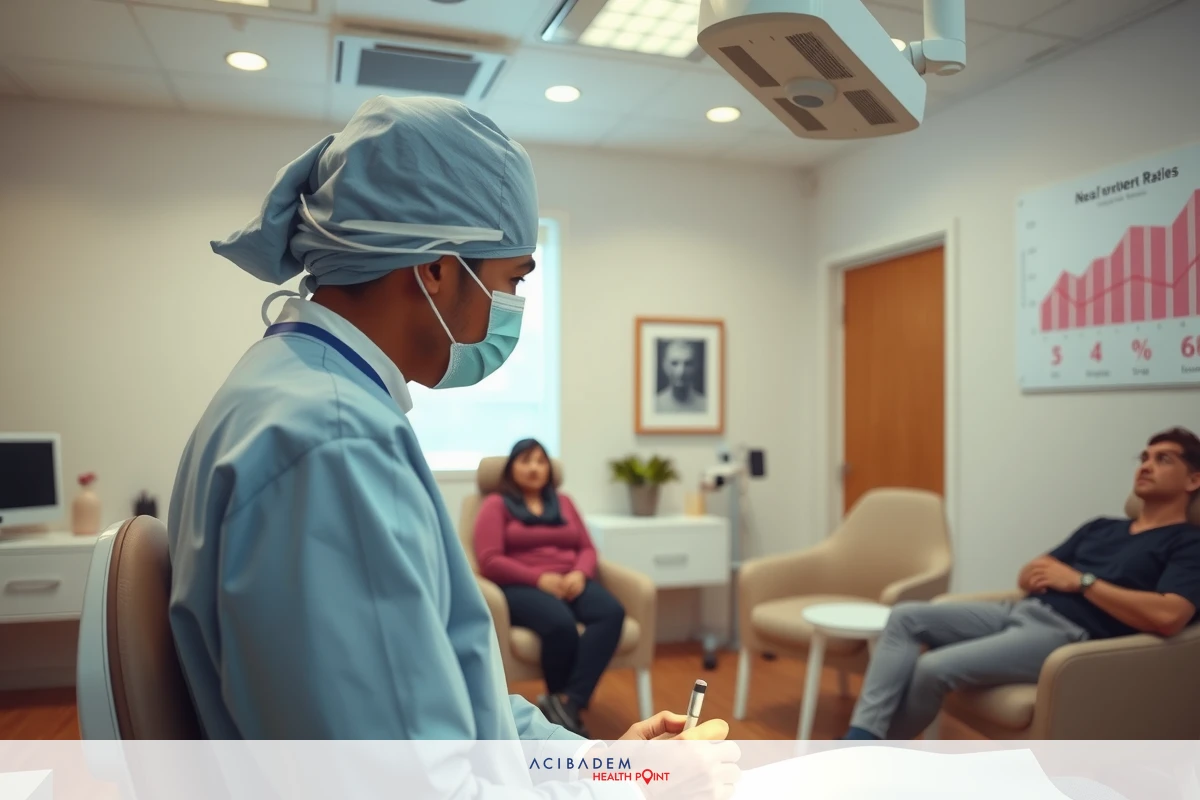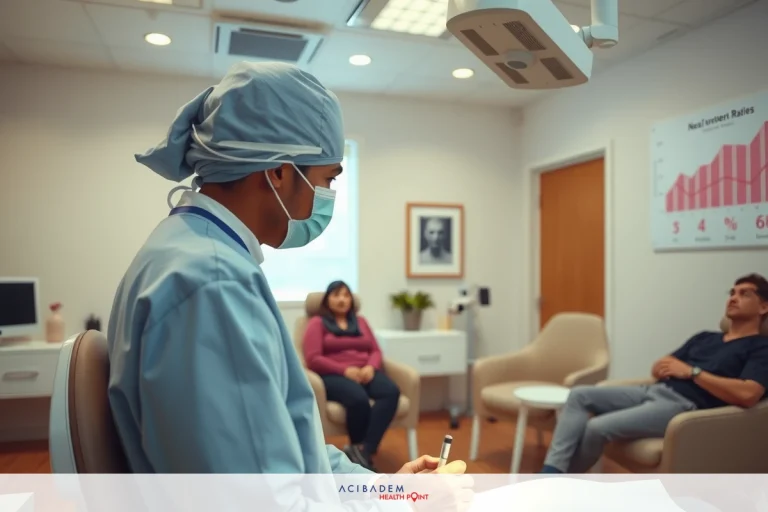What is the Revision Rate for Rhinoplasty
What is the Revision Rate for Rhinoplasty Rhinoplasty carries with it an element of uncertainty. This manifests as what professionals term ‘revision rate’, a measure capturing instances where patients require subsequent procedures post-initial operation. The intricacies of these operations are manifold and vary across individuals due to factors such as surgical processes, patient health conditions and surgeon expertise.
Delving deeper, the role of an experienced surgeon in this context cannot be overstated. Their proficiency often determines how well potential complications can be mitigated thereby reducing the need for revisions. Simultaneously, there exist actionable strategies that prospective patients might employ towards minimizing revision rates. These encompass careful selection of medical practitioners alongside adhering to pre-op instructions among others.
The world of rhinoplasty is thus layered with considerations beyond just aesthetic enhancement; understanding its nuances including revision rates can equip individuals better on their journey towards improved self-confidence.
Factors Affecting Revision Rate
Each rhinoplasty procedure is unique, influenced by a variety of factors that can affect the revision rate. These elements range from pre-surgical considerations to surgical technique, patient characteristics, and post operative care. The comprehensive understanding of these aspects is crucial for anyone considering rhinoplasty.
One of the most significant influences on the revision rate is undoubtedly the skill and experience of the surgeon performing the procedure. It’s not merely about their technical prowess; it also involves their ability to set realistic expectations, understand individual aesthetic goals, and manage potential complications effectively. Consequently, choosing an experienced surgeon proficient in rhinoplasty often leads to improved outcomes reducing the need for surgical revisions.
Patient characteristics such as skin thickness, facial structure or existing health conditions are other substantial factors impacting revision rates. For instance, patients with thicker skin may have more swelling post-procedure which might affect final results leading potentially towards a higher likelihood of needing revisions. Furthermore, underlying medical conditions could complicate recovery processes thereby increasing chances for additional procedures.
Preoperative planning plays its part too where thorough consultations help in aligning patient expectations with achievable results thus diminishing possibilities for dissatisfaction-driven revisions later on. Equally important are post-operative measures like strict adherence to aftercare instructions since improper healing or infection can necessitate further surgeries.
While ‘revision rate’ might appear a simple singular term – behind it lies a labyrinthine network interwoven with diverse influences all contributing uniquely towards ultimate surgical success.
Importance of Choosing an Experienced Surgeon
The selection of a skilled, experienced surgeon is one pivotal decision in the journey towards successful rhinoplasty. This professional holds in their hands not just medical instruments but the power to shape outcomes and significantly influence revision rates. The realm of rhinoplasty demands precision, deep anatomical knowledge, artistic vision and meticulous execution – all hallmarks of an experienced surgeon.
An adept surgeon evaluates each case individually, considering unique facial characteristics to design personalized surgical plans aimed at achieving optimal results. They navigate complex nasal structures with

finesse minimizing tissue trauma which supports smoother recovery periods thereby reducing possibilities for revisions. Their depth of experience often equips them better at anticipating potential complications and taking proactive measures to avoid them – another contributor towards lowering revision rates.
Moreover, they possess the capacity to communicate effectively setting realistic expectations about what can be achieved through surgery thus preventing disappointment-driven revisions down the line. The rapport established between patient and doctor fosters trust making patients more inclined to follow post-operative care instructions diligently which further aids successful healing and decreases chances for additional procedures.
While ‘experienced surgeon’ might seem like just another checkmark on pre-surgery protocols list it actually embodies a significant determinant impacting procedural success reflected through minimized need for subsequent revisions post initial operation.
Tips
Rhinoplasty, being a complex surgical procedure, often hinges upon multiple factors when it comes to defining success. The revision rate, which signifies how frequently additional surgeries are needed post initial operation, typically falls within a 10% range and serves as a key determinant. While some influences on this rate might be beyond direct control, there exist several actionable strategies that prospective patients can employ to reduce its likelihood.
Here are some practical tips that could help reduce the revision rate and enhance the overall success of rhinoplasty procedures:
- Select your surgeon wisely: The experience and skill set of your surgeon significantly influence procedural outcomes. Aim to choose a medical practitioner who specializes in rhinoplasty and has sufficient years of practice under their belt.
- Maintain transparent communication: It’s crucial to have open dialogues with your surgeon about expectations from the surgery, potential risks involved, and recovery processes thereby mitigating chances for disappointment-driven revisions later on.
- Follow pre-operative guidelines: Adherence to pre-surgery instructions like avoiding certain medications or substances can improve surgical results by reducing complications. 4. Diligent aftercare: Post-operative care plays a significant role in healing and final outcomes; following aftercare protocols rigorously helps prevent infection or improper healing which otherwise may necessitate further surgeries.
- Patience during recovery phase: Healing takes time; premature concerns over appearance could lead to unnecessary revisions while ultimate results might still be pending due to residual swelling or gradual tissue settling.
Incorporating these suggestions into your journey towards rhinoplasty doesn’t just equip you better but also contributes positively towards achieving desired aesthetic goals with minimized need for subsequent revisions post initial operation
What is the Revision Rate for Rhinoplasty: Frequently Asked Questions
What is the average revision rate for rhinoplasty procedures?
The revision rate can fluctuate significantly, typically within a 10% range, based on multiple factors, including the expertise of the surgeon, the unique attributes of the patient, and the extent to which post-operative care recommendations are followed. It is recommended to address this issue with your prospective surgeon during your initial consultations.
Why would a rhinoplasty procedure require revisions?
There could be multiple reasons including complications in healing, dissatisfaction with aesthetic results or unexpected outcomes like functional issues post-surgery. An experienced surgeon can help mitigate these possibilities through meticulous planning and execution.
How much time should I wait before considering a revision surgery if I'm unhappy with my initial results?
Patience is key here; full recovery from a rhinoplasty procedure may take up to a year or more due to gradual settling of tissues and resolution of swelling. Rushing into revisions prematurely might lead unnecessary procedures while ultimate desirable results are still pending.
Can the risk for needing revisions be fully eliminated?
While it's impossible to completely eliminate risk given individual variability, steps can definitely be taken towards minimizing it - choosing an experienced surgeon, following pre- and post-operative instructions diligently among others contribute substantially towards reducing likelihoods for additional surgeries.











